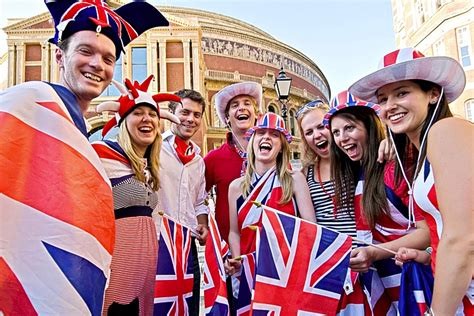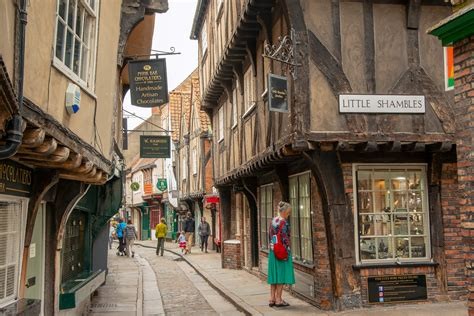
At risk of embarrassing most dyed-in-the-wool liberals, I thought I might raise the subject of patriotism. Notable 'anywheres' as opposed to the 'somewheres' of the world, liberals and those others generally on the Woke army's side in the culture wars, regard the subject as too near to other more dangerous themes such as nationalism and outright jingoism.
It is now a nationally instituted rite that old auntie BBC agonises over this very question every Last Night at The Proms. Can they finally get Jerusalem off the song sheet thus ushering in a more enlightened era of future liberal harmony in which no one any longer insists upon celebrating that which is quintessentially British?
Try as they might, they always are thwarted and yet when I hear them churning out the excuses for dropping Land of Hope and Glory year upon year I do wonder if they've really understood the subject. Wider still and wider, shall thy bounds be set; terribly racist and colonial, not to mention tantamount to endorsing slavery, don't you see?
The poor old Beeb is currently sailing into a strong headwind, regrettably for them. Trying to win any arguments against patriotism or nationalistic fervour is a hard sell. I hear this year that they've even got into a bit of a tiz over which flags are in and which out at the Albert Hall. What a rabbit hole to go down, but how do I know patriotism is in vogue and that the BBC is finding the landscape not to their liking?
For an answer to that question, one needs to look no further than those bellwethers of commodified principle in the moral marketplace than the political class. Everyone from Corbyn to Johnson has wanted a piece of the limelight over the past few years, each sensing that the plebs generally approve of someone standing up for our country. Whether or not their hearts are in it any more than was Cameron's though, when he tried to pass himself off as a man of the people, because he was, as he claimed, a regular at Gregg's is anyone's guess.
It's the Conservatives whose brand is patriotism. Significantly then, Keir Starmer claimed that he was proud to be patriotic following criticism of his party that voters were confused about what Labour stood for. Lisa Nandy stated that “when it came to the crunch, Labour was on somebody’s side other than their own” and that, “There is a need for Labour to repair some of that damage and show people very clearly that we stand up for this country.”
Boris Johnson and others from the Conservative government benches regularly used patriotism as a call to action or a blustering defence if the need arose. On reopening pubs after the pandemic it wasn't enough to announce a straightforward 'open doors'. Oh no, it was nothing short of your public duty to go up the boozer according to Boris Johnson. People ought to, “do their patriotic best for Britain” and head to the pubs when they reopen on July 4, he exhorted.
I get it. Labour's weakest flank might seem like an easy target for political point scoring, legitimately so you might think. That the matter of patriotism has become a political football once more is undoubtedly true, too. It is a cynical ploy to my mind about as transparent as Cameron's
aforementioned Gregg's gambit. As Polly Toynbee wrote in The Guardian as far back as 2020, when Labour was trying to shed its somewhat deserved image as an unpatriotic collective of Britain haters, “Labour needs to appropriate patriotism as its own. Angela Rayner did it well in her opening speech. It is not patriotic, she said, for companies such as BA and British Gas to fire and rehire their workers on worse pay and terms: “If you’re going to use our country’s name, then you had better respect our country’s values.”
An interesting verb, “appropriate”, which I'm sure went down well with the party faithful back in the day, but do I detect an unpalatable irony here in that liberalistic mind-soup of dissonant moral standards? It is they, is it not who resent naked nationalistic expression? You play with the word patriotism at your peril. I do not believe there exists any such thing as patriotic duty. Patriotism is not a duty, but a love.
Politicians do know this of course, but are fond of shifting the emphasis through rhetorical sleight of hand. They know that patriotic feelings, for that is what they are, arise from a love of place and much more. Our daily lives carry meaning peculiarly redolent of Britishness. I might not actually know my immediate neighbours who I pass regularly every morning, but I seem to recognise in them a kindred set of values. When we go down to the pub, as Boris Johnson well knows and which he's trying to tap into, we are comforted to know that we'll be entering into a specifically British style of social engagement.
Yes, I'm sure that conviviality in a French street café taken among friends over a glass of the local plonk amounts in essence to much the same, but it's just not the British way. My visit to my favourite watering hole might not even be an unalloyed journey of pleasure, especially when the locally well-known obnoxious dick strays into the bar and promptly gets ejected for trying to pick a fight. It doesn't matter. Pub bores and dry cake in the tea shop are as British as apologising for causing a car crash even though the other chap was clearly at fault. It really is about the place and the values, and anyone can add a thousand other examples of the sort of trivia taken from everyday life proving that it is demonstrably so.

Our history too is wrapped up in our feelings for this old isle and its way of life. It isn't always a story of noble aspiration and defence of the weak, or of heroically dragging the rest of the world towards higher ideals and expectations despite its own regressive tendencies. We really did persecute our Jews and executed a king. We haven't always had good intentions in our Imperial policies, nevertheless we can legitimately extract a sense of overall satisfaction with the saga played out in the “White Isle”.
It isn't the lessons taken from history that make us patriotic, but it is how history has stimulated our imagination that pulled us in to owning our past. In many, those loves of neighbourhood and pride in common heritage leads to a way of thinking in which they consider this nation to be superior to others' and not in a healthy way. That's where the liberals' 'jingo-dar' starts squeaking. An overweening sense of one's national superiority could easily fall prey to bigotry. A blind nationalism that regards itself as superior might sour, just as all true loves can sour, becoming instead a feeling that the rest are simply inferior. It's the sort of logic that might get 6,000,000 innocent people killed.
The Conservatives might have a patriotic brand and the other lot might finally have cottoned on to the fact that patriotism matters, but to whom do you owe your patriotic sentiment is the question.
Do you owe it to HM Gov? Is it your role to adopt “British Values” every time a crisis comes around? If that were the case, then the liberalistic mindset to which almost our entire political class appears signed up to would be fully justified in its endeavours. Bring as many immigrants in as you like and as long as they practice British values and act like good citizens then all's good, isn't it?
While that might be a function of owing allegiance to a government's sense of law and order if it worked, I'd also argue that it does not a patriot make. It does not even make you a good patriot despite you having lived here all your life and never even having been abroad to spend a week in Marbella on your hols. A successful project in Anglicisation might very well have taken place, but desirable as that is please let us not kid ourselves that that feeling for place and heritage and sense of collective history has thereby come about.
But as I say, politicians know this full well. Getting us to peacefully coexist is enough and if they can get the plebs to come on board because of a fuzzy sense of patriotic duty then that's just fine. Owning the brand is the name of the game. So, where's the irony in the “Liberal mind-soup” I alluded to? It is this: if you try to “appropriate” love for political purposes, then you also corrupt it. You could end up turning it into the very nationalistic bigotry that you profess to fear if you were to let the leash slip.
Let me put it another way. If I were asked to fight for the king, to join his army because he is the king, not a chance. If on the other hand you asked me to do so because the very notion of the British monarchical system as we've grown to love it and respect it is at stake? Yes, every time. If you asked me to fight for my prime minister, its cabinet and the government, not a cat in hell's chance.
Conversely if the institution of British democracy itself were at stake, then obviously yes. Isn't there any individual I would stand up for, then? Yes, my mother obviously, but she's a gin swigging drunken waster, you might observe. So what, I'd say. My mother, drunk or sober, because I love her. It'd be no duty, I can assure you.
Anyone who has read around a bit will recognise that reference as belonging to a certain G.K. Chesterton. The full quote goes: “My country, right or wrong,’ is a thing that no patriot would think of saying. It is like saying, ‘My mother, drunk or sober”
So yes, I would fully expect Queen Camilla to defend Charles III, even if I might not. The rather bigger message is that I do nothing for my government, because my sense of patriotic love is far greater than those people. Frankly they are far too low in the pecking order to warrant my undivided loyalty. If politicians could just stop trying to dragoon my intensely personal love for my country into the armies of their political desires then that'd be just grand. Politicians who proclaim their humanity through their undying association with the brand known as Gregg's, or others who want to merely appropriate patriotism, come across to me as a bit insincere. My love of country doesn't belong to you, Keir. Or you, Boris. It belongs to me and only where I recognise a kindred spirit, only then do I recognise you.